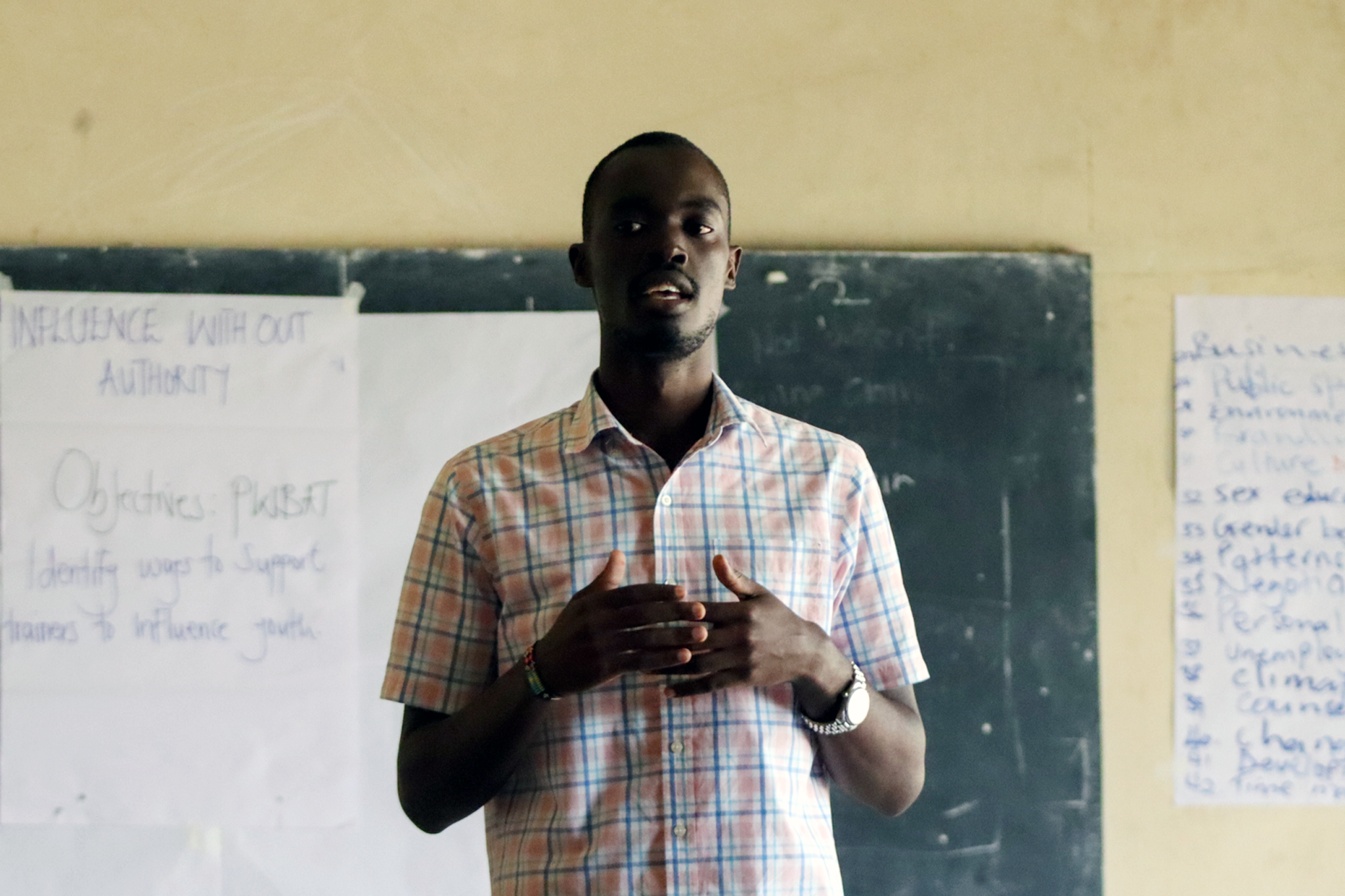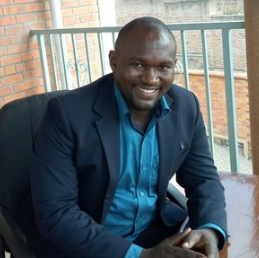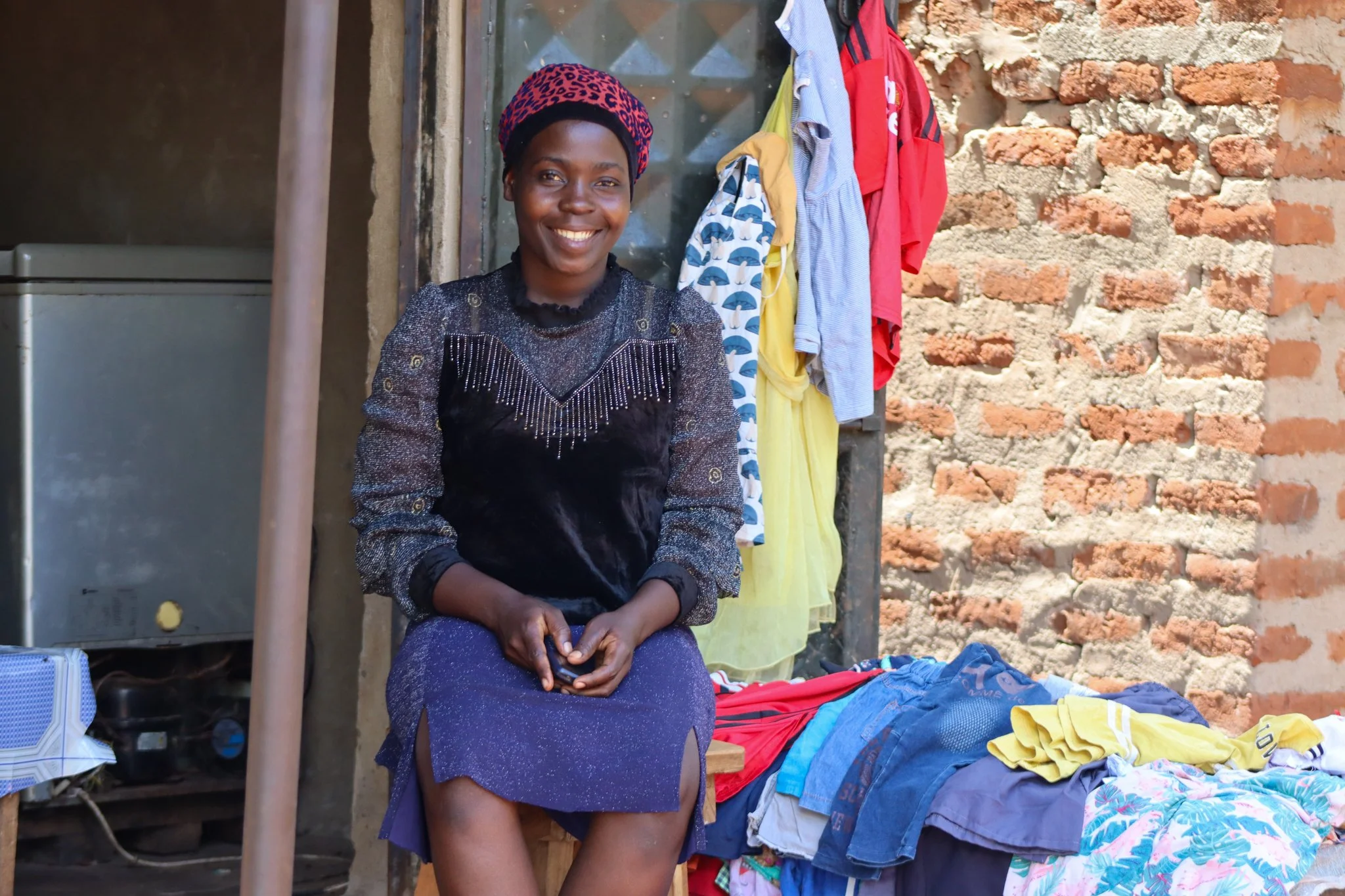The Power of Localization in Education for Out-of-School Youth
At the Edheroes 2024 Global Forum, a 24-hour livestream mixing workshops and panels on the topic “Cultural Heritage in Education”, Educate! hosted a discussion on customizing education to the context of youth.
Our session, "Culturally-driven Design: Educate!'s Livelihood Bootcamps for Out-of-School Youth," featured Anthony Muzito Kaiso, Educate!'s Regional Training Specialist; Dorothy Namubiru, Program Manager for Out-of-School Youth, and Francis Kibirige, Training Officer for Out-of-School Youth – all based in Uganda. Natasha Mulenga Hornsby, Educate!'s Director of Marketing and Communications, moderated.
Here, we share their insights on Educate!’s localized approach – and how this is enhancing outcomes for out-of-school youth.
Watch the full panel discussion below.
Addressing the Challenge Facing Africa’s Youth
The discussion began by highlighting that across much of Africa, nearly 50% of young people are out of school. For young women, the statistics are even more cause for concern: in some rural areas only 1 in 20 girls are on track to finish secondary school. Looking ahead to 2035, Africa is projected to have the largest youth population in the global workforce, the majority of whom will work in the informal sector.
Educate!’s livelihood bootcamps are helping to bridge this gap. Bootcamps bring quality learning opportunities to youth who are out of school, with a particular focus on girls and young women. This equips young people with business skills, such as market research, financial literacy and customer service, encouraging them to turn entrepreneurial ideas into small businesses. At the same time, they build transferable soft skills such as communication and problem solving.
Localization means adapting to suit local realities. Our bootcamps are uniquely tailored to address the differing challenges and opportunities present in each community. Educate! conducts thorough research to understand the diverse youth needs, obstacles and economic landscape of the area. This in-depth understanding allows us to more effectively meet the specific needs of youth.
Tailoring Learning Materials to Local Cultures
A key aspect of localization relates to learning materials. During bootcamps, trainers translate material into local languages and incorporate culturally relevant examples. Training officer Francis Kibirige elaborated on Educate!’s approach to curriculum design, emphasizing the importance of customizing materials according to region.
“We've observed that youth gravitate towards specific types of businesses in their respective areas. For example, in some sites, learners focus on farming or selling agricultural products, while in others, they're more interested in clothing. To address this, we tailor the curriculum to fit the local context, using examples and case studies that resonate with the participants.”
Localization encompasses more than just tribe, faith, or language; it also includes the unique context of out-of-school youth. Many of these young people may have had negative experiences with formal education; they may lack basic literacy and numeracy skills, and often struggle with low self-esteem. To address this, we create a learning environment where they feel comfortable and supported. On the walls, learners see images of young people from previous cohorts who have successfully started small businesses in their local area, serving as inspiration. Our trainers, who are peers from their communities, use interactive teaching methods like games, role-playing, and practical activities. This makes learning engaging and inclusive.
The most important lesson revolves around cultivating a growth mindset, as youth who have not completed school often lack confidence. Practical tasks are designed to build a “yes I can” mentality. For instance, learners are asked to go into the community and exchange a pencil for something more valuable, a simple task that develops communication and negotiation skills. These experiences help them gain the confidence to overcome challenges and achieve their goals.
Engaging Mentors and Community Gatekeepers
Our trainers are young and from the same community as the participants, making learning relatable. This peer-to-peer connection creates an environment where youth feel understood and supported facilitating better communication between trainers and youth. Often trainers become role models, mentors and sources of inspiration, sharing their own experiences of goal-setting and business ownership to guide and support mentees.
Educate! invests significant time in understanding local belief systems, tribal structures, and community dynamics by engaging community gatekeepers – parents, spouses, religious leaders, and local chiefs. This allows us to address specific concerns or barriers. Gaining the support of community leaders builds trust and ensures the training is well-received. Program Manager Dorothy Namubiru pictured below (right) emphasized,
"As an organization, we don't work in isolation. It's crucial to understand existing structures and engage gatekeepers to connect with the youth we serve. There’s also a lot to learn from the community to improve and expand our bootcamps."
Addressing Gender Barriers
Many participants have faced significant challenges, including single mothers struggling to provide for their children. To create a supportive and effective learning environment, we offer tailored support such as transport reimbursements, camp buddies who counsel participants on issues that can affect attendance, or schedule catch up sessions for those who had to deal with a family emergency. We provide sanitary towels since we found that women were missing training sessions due to a lack of feminine hygiene products.
It is crucial to address gender-specific challenges and perceptions. We often encounter gendered beliefs around women being educated or starting businesses. As a result, some female participants are discouraged by husbands or parents from attending training. To overcome this, we hold open days where gatekeepers are invited to join the bootcamps alongside their spouses or children. This approach not only changes family members' perspectives but also encourages them to commit to being a source of support.
"While we deeply respect the cultures of the communities we serve, we are also courageous enough to address and challenge negative gender-based attitudes. This empowers young women to overcome barriers and achieve their life aspirations. It is always a wonderful experience to witness family members change their mindsets and sometimes even pledge financial support to help them start businesses."
- Anthony Muzito Kaiso, Regional Training Specialist, Educate!
Impact of Livelihood Bootcamps
Oliver, a young woman from Uganda, was struggling as a single mother before attending the training. Within seven months of graduating from the bootcamp, she’d started a small community shop and clothing business, with the support of her father.
“The bootcamp changed my perception of women. I have no husband but I can earn money and I can pay school fees for my son. I also hope to support my younger siblings to go to school.”
- Oliver
Livelihood bootcamps are significantly impacting the lives of youth. Across all our bootcamps, we have seen a 50% relative increase in youth income and a 25% absolute increase in business ownership. This means that one out of four youth who previously did not own a business now successfully operates one.
These figures underscore the effectiveness of localized approaches in driving meaningful and sustainable economic improvements for young people. Our commitment to understanding local cultures and addressing gender barriers is the key to supporting youth like Oliver in building livelihoods for themselves and their families.

















